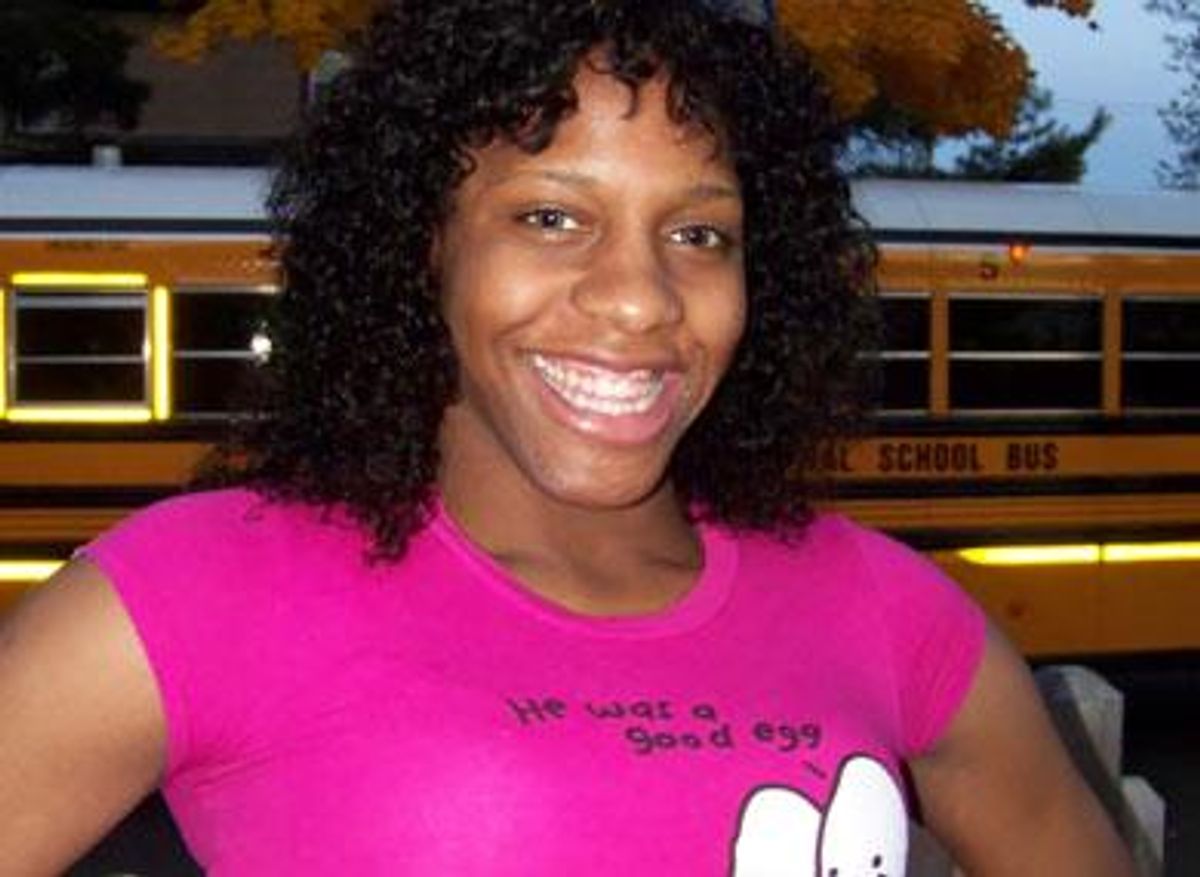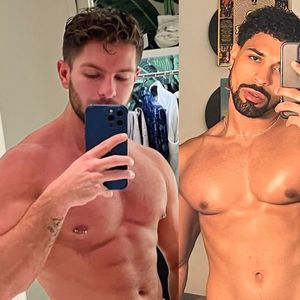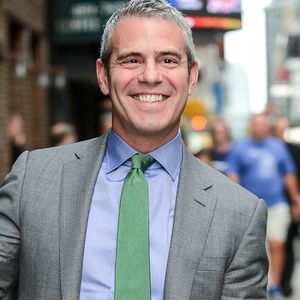In light of the Trayvon Martin killing -- an incident in which a black youth armed with only a cell phone and pack of Skittles was killed by a white neighborhood patrol member -- there's been a whirlwind of media coverage debating the issues of race and justice and occasionally how LGBT folks should or do fit into the mix.
Nowhere are those issues more apparent than in the case of CeCe McDonald, a 23-year-old African-American transgender woman who goes on trial in Minneapolis April 30 for second-degree murder. It's a case that has galvanized Minnesota's LGBT community as well as transgender and African-American individuals nationwide. To many it's served as a stark reminder that that black and transgender people experience imprisonment at a rate significantly disproportionate to that of the general U.S. population. And according to recent studies by the National Center for Transgender Equality and the National Gay and Lesbian Task Force, trans people are at greater risk of discrimination, mistreatment, harassment, and assault throughout their experiences with the criminal justice system.
McDonald (named Chrishaun by her parents, nicknamed CeCe by her friends) was charged with second-degree murder after a June 5, 2011, incident in Minneapolis, on an evening that began like many in the city. At the time, McDonald was a vibrant and creative young woman known by her friends as energetic and optimistic. She was studying fashion at Minneapolis Community and Technical College, a program that's the only one of its kind in the upper Midwest and has led many bright young students to Minneapolis's rather vibrant fashion and theater scenes for work.
She lived with and helped support four other African-American youth, her chosen family of queer and trans kids she was trying to mentor and assist. Each person described her as a leader, a role model, and a loyal friend, and notably, a woman who had, say many supporters, a history of handling prejudice with amazing grace. Her friends called her Honee Bea.
On June 5, 2011, McDonald and four black friends, all of them trans or queer, headed out to Cub Foods, a popular grocery store in south Minneapolis, just after midnight. The grocery store is in one of those business strips where working-class and immigrant entrepreneurs struggle for the American dream. It is, writes Redlark, a white lower-middle-class queer activist in the Twin Cities, in a Tumblr post in support of McDonald, "a busy, polluted, vital artery" between a police station and a light rail station, "in a historically contested neighborhood where communities meet, mix, and sometimes contend: the older white working class who bought in during the '70s and '80s meets immigrants from Mexico, Somalia, and Central America who came looking for work or for political refuge; Native people still under the gun of colonization; African-Americans who've lived in Minneapolis for generations or arrived from Chicago or New Orleans in the last few years; students, punks, and radicals, mostly, but not exclusively white, gentrifiers or born in the neighborhood."
Along the route, the group had to pass a dive bar, the Schooner Tavern, one of the first liquor establishments in Minneapolis, which has been going strong since Prohibition ended. It's the kind of place that has pool tables and karaoke, Viking games on the TV, Jagermeister Tuesdays and free hot dog Fridays, 15 types of beer on tap, and open jams on the weekend.
But as McDonald and her friends walked near the bar, two women and a man, all of them Caucasian, began to verbally harass the group, according to witnesses. McDonald says they called her and her friends the n word as well as "faggots" and "chicks with dicks." Her roommate Latvia Taylor told the Minneapolis Star Tribunethat the man, Dean Schmitz, also asked McDonald, "Did you think you were going to rape somebody in those girl clothes?"
Sadly, for McDonald, a trans woman of color, the verbal harassment was nothing new, but this time she decided to stand up for herself. The group stopped, and McDonald told the trio that she wouldn't stand for their racist and transphobic attacks. Soon one woman reportedly yelled, "I'll take you on, bitch" and hit McDonald in the side of the face with a glass beer mug, lacerating her salivary gland and slicing her cheek through to the interior of her mouth.
What happened next is murky still. What cops might call a bar fight ensued, with several more people joining in the melee. At the end, McDonald was lying in a pool of her own blood, Schmitz in a pool of his blood. The father of four had lost too much blood to survive.
The 47-year-old Schmitz had been stabbed with a pair of fabric scissors that McDonald had her in purse. Confused and frightened, McDonald first allegedly told police Schmitz had run into her scissors as she was fighting back from the all-out assault on her, an act of protection that came with the ultimate cost. Later she said it was a friend of hers who used the scissors to protect her. It's not clear if CeCe McDonald is sure exactly what happened, but she does know one thing: She isn't guilty of second-degree murder.
Schmitz died before EMTs arrived. When police arrived, they arrested McDonald and no one else. After she received 11 stitches in her face and waited three hours, the police interrogated her without counsel. After she signed a confession, she almost immediately recanted, says Billy Navarro Jr., cofounder of the Minnesota Transgender Health Coalition's Shot Clinic/Syringe Exchange, and a leader of the Free CeCe Campaign, something McDonald's attorney will be reminding jurors later this month, no doubt.
After her arrest, McDonald was placed in solitary confinement in the local jail, something that's common for incarcerated transgender women but no less harrowing because of that. McDonald says she asked frequently to be put into general housing with other prisoners -- after all, life in "the hole" is terrifying and lonely -- but Hennepin County jail officials kept her in the hole for a month "for her protection." Eventually she was transferred to a male psychiatric unit in a local facility and two months into her incarceration she was finally taken back to a doctor to check up on the wound she suffered in the Schooner Tavern attack, which by then, says Navarro, "had turned into a painful, golf ball-sized lump."
Several blogs and Minneapolis City Council member Cam Gordon later reported that the Hennepin county medical examiner found a Nazi swastika tattoo on Schmitz's chest (the report is not online) and his brother, Charles Pelfrey, told the Minneapolis Star Tribunethat hate speech-type language coming from his brother wasn't a surprise. "At times he can be like that, yes," Pelfrey said. "It depends on his mood, unfortunately."
But still, prosecutor Michael Freeman has refused to drop the charges.
The National Center for Transgender Equality and the National Gay and Lesbian Task Force recently conducted an extensive nationwide survey of transgender and gender-nonconforming individuals to evaluate the frequency and intensity of discrimination they face. What they found is shocking but bears weight on the case against CeCe McDonald: 38% of African-American respondents experienced police harassment, 15% reported being physically assaulted by the police, and 7% reported being sexually assaulted by the police; 38% of African American MTF (male-to-female) respondents reported being sexually assaulted by either another inmate or a staff member in jail/prison; 41% of African-American respondents reported being imprisoned because of their race and gender identity alone; a whopping 47% reported having been in jail or prison for any reason.
What some of those statistics boil down to is that nearly half of the respondents (46%) were uncomfortable seeking police assistance, and transgender people -- perhaps because they are four times more likely to live in extreme poverty -- are 10 to 15 times more likely to be incarcerated at some point in their life.
McDonald, whose pretrial court date is April 24, and her first trial date April 30, was initially charged with second-degree murder without intent. After she refused a plea agreement, on October 6, the Hennepin County Attorney's Office added an additional charge of second-degree murder with intent; one dead man, two murder charges, each of which can land her 40 years in Minnesota state prison.
Supporters argued that the harsher charge demonstrates that the Hennepin County Attorney's Office continues to side with the white supremacists who attacked her and fail to acknowledge the hate crime that McDonald suffered, says Katie Burgess, executive director of the Trans Youth Support Network. "There is a clear choice to be made in this situation: Do you stand with white supremacists? Or do you stand with queer youth of color in our community? Hennepin County has chosen to protect the interests of hate and bigotry. As people of conscience and compassion, we're calling on them to exercise their discretion in this case and drop the charges against CeCe!"
Burgess and Navarro are just two of the many leaders of the Free CeCe movement and are helping to plan a large protest at Government Center April 26, ahead of her trial date. Her supporters include several high-profile LGBT individuals, such as author Leslie Feinberg, as well as local organizations (as diverse as Queers for Economic Justice, Transgender Law Center, TGI Justice Project, the Department of Multicultural Life at Macalester College, the University of Minnesota's African-American and African Studies Department, and Communities United Against Police Brutality). There are dozens more, as well as local luminaries and politicians at state and local levels. Minneapolis City Council member Cam Gordon released a statement saying, "I am adding my voice to the growing number of those speaking up to support CeCe McDonald and call for fairness, transparency, and expediency in her case. Chrishaun CeCe McDonald's case started with a tragic incident that occurred last summer that left one person dead. The basic facts don't seem to be an issue in this case that now centers on CeCe, a 23-year-old African-American transgender woman charged with second-degree murder. It appears that CeCe was the victim of a hate crime that involved many people but she was the only person held by the police. Here is another example of transgender women of color being targeted for hate- and bias-related violence. It is unfortunate that in this case, as in so many, the hate crime itself appears to have been ignored."
Dean Spade, assistant professor at Seattle University School of Law and founder of the Sylvia Rivera Law Project; Minnie Bruce Pratt, author of S/he; and Kate Bornstein, author of Gender Outlaw are all among the renown supporters calling for McDonald's release.
Actress Laverne Cox wrote in The Huffington Post, "This case highlights how even when trans people, particularly trans people of color, are lucky enough to survive the brutal violence that is a part of so many of our lives, we are all too often victimized all over again by the criminal justice system." The Gay and Lesbian Alliance Against Defamation, another McDonald supporter, says that hate crimes affect people of color at alarmingly higher rates compared to other trans people, and this case is a stark reminder of the injustice of that.
"I think also we see this as such obvious institutionalized racism and transphobia," says Navarro, "for several reasons. When this incident happened no arrests were made of anyone but CeCe, and she was the only trans woman of color there. They didn't arrest the white, [non-trans] woman who attacked her and left her bleeding after she smashed a glass beer mug on CeCe's face. There has also been no physical evidence brought into court saying that CeCe did anything. The only witnesses that say she did anything wrong are a part of the group of racist, white adults that attacked her and her friends."
It's not the only injustice in the case, he says. Housing "someone that presents as female with men" means McDonald is not safe and "the justice system's only solution to that is to put her into solitary confinement, which, if you have read the studies, is pure torture."
Feinberg, who knew the sting of anti-trans violence decades ago, is urging everyone to find a way to support McDonald's plea for release. "CeCe McDonald -- with the help of organized supporters -- is struggling to free herself from behind bars after successfully defending herself against a bloody attack by a group who used white supremacist, transphobic, gay-hating, antiwoman, youth-bashing slurs and violent physical assault," he says. "The right of self-defense against all forms of oppressions -- the spirit of Stonewall -- is at the heart of the demand to free her."
Today, Feinberg is just one of many people and organizations showing support from outside the state of Minnesota. Three official support committees have popped up -- in Chicago, Buffalo, N.Y., and Bloomington, Ind. -- and several ones are forming in New York, California, and even Paris, says Navarro.
These committees have thrown fund-raisers, hosted community education and rallying events, and have spread McDonald's story via radio, newspapers, blogs, and even Tumblr.
Supporters also delivered a petition with over 12,000 signatures and a letter signed by 35 local, state, and national organizations directly to Hennepin County Attorney Michael Freeman's office earlier this week, says Burgess, demanding that he drop the two second-degree murder charges levied against McDonald. He has so far declined to do so.
"Leslie [Feinberg] and many others have been working on a national and international level to let folks know about CeCe and all the racist transphobia she's having to deal with as she fights for her life," Navarro says. "And we have to remember that this whole incident could have so easily gone another way, as so often it does with young trans women of color. More often then not, we are fighting to prosecute our sisters' murders. It's a statistical anomaly that CeCe survived this brutal attack. If a straight, heck, even gay white man was to be attacked and survive, he most likely would not be treated the way CeCe has. She survived; she is basically being prosecuted for surviving."



















































































